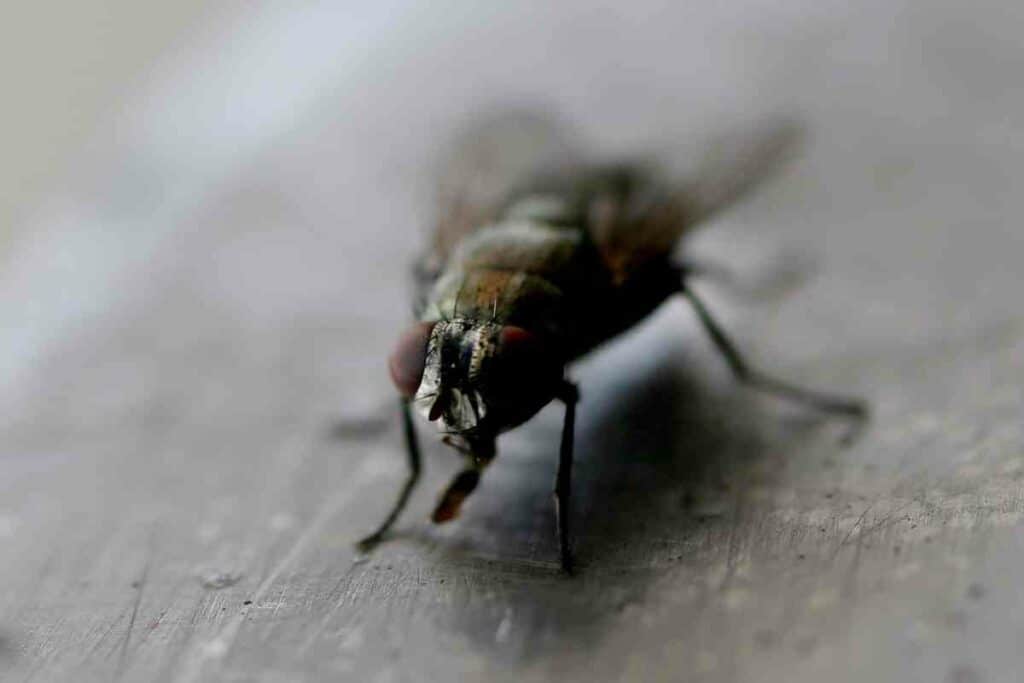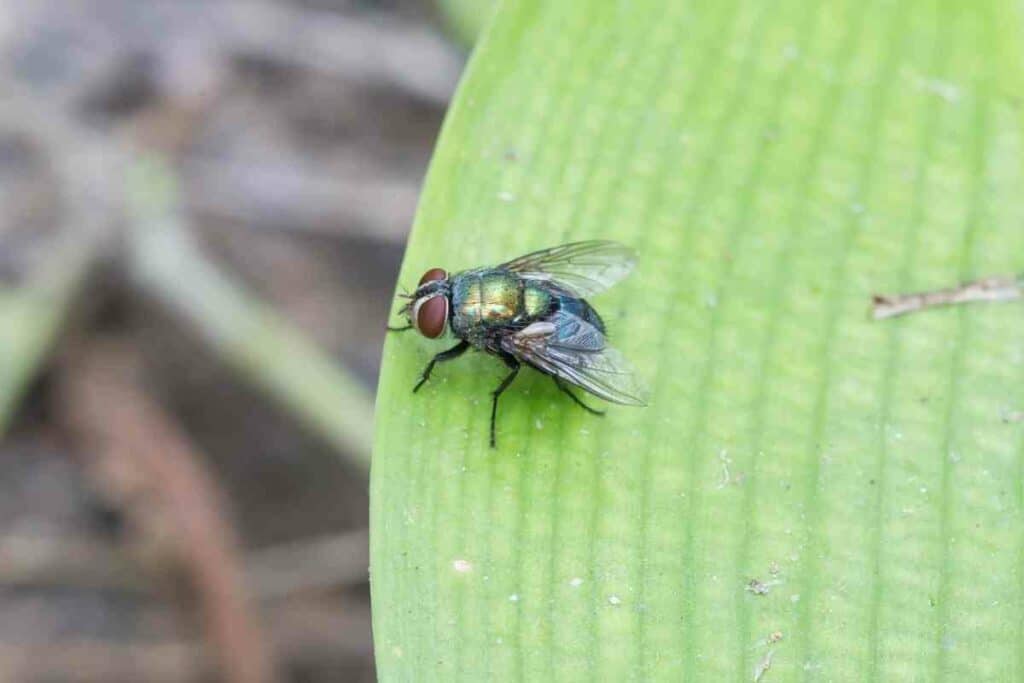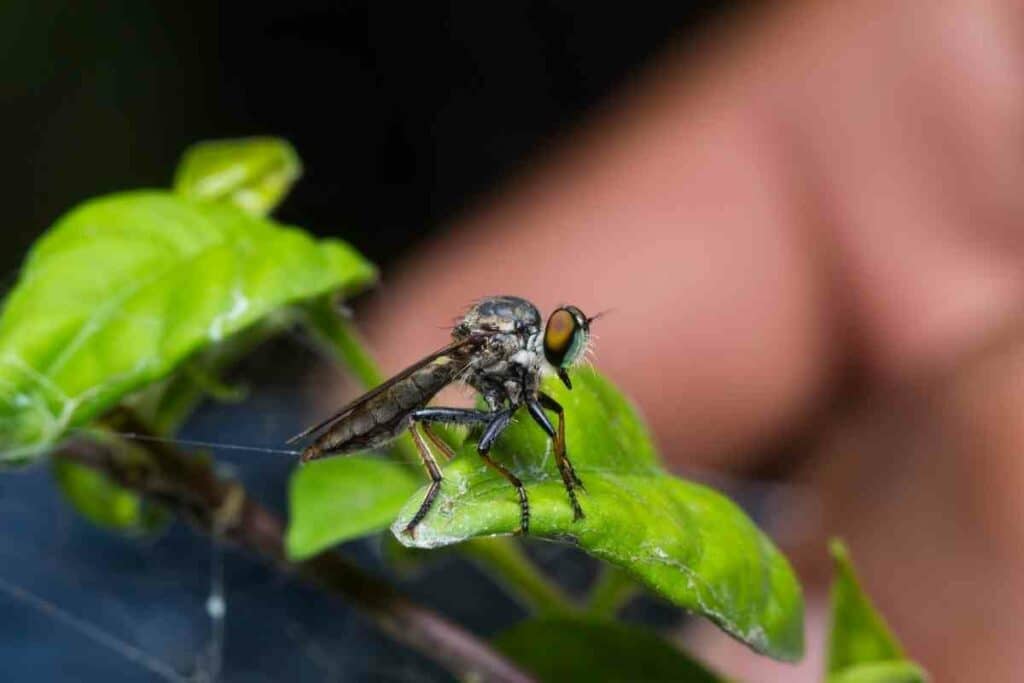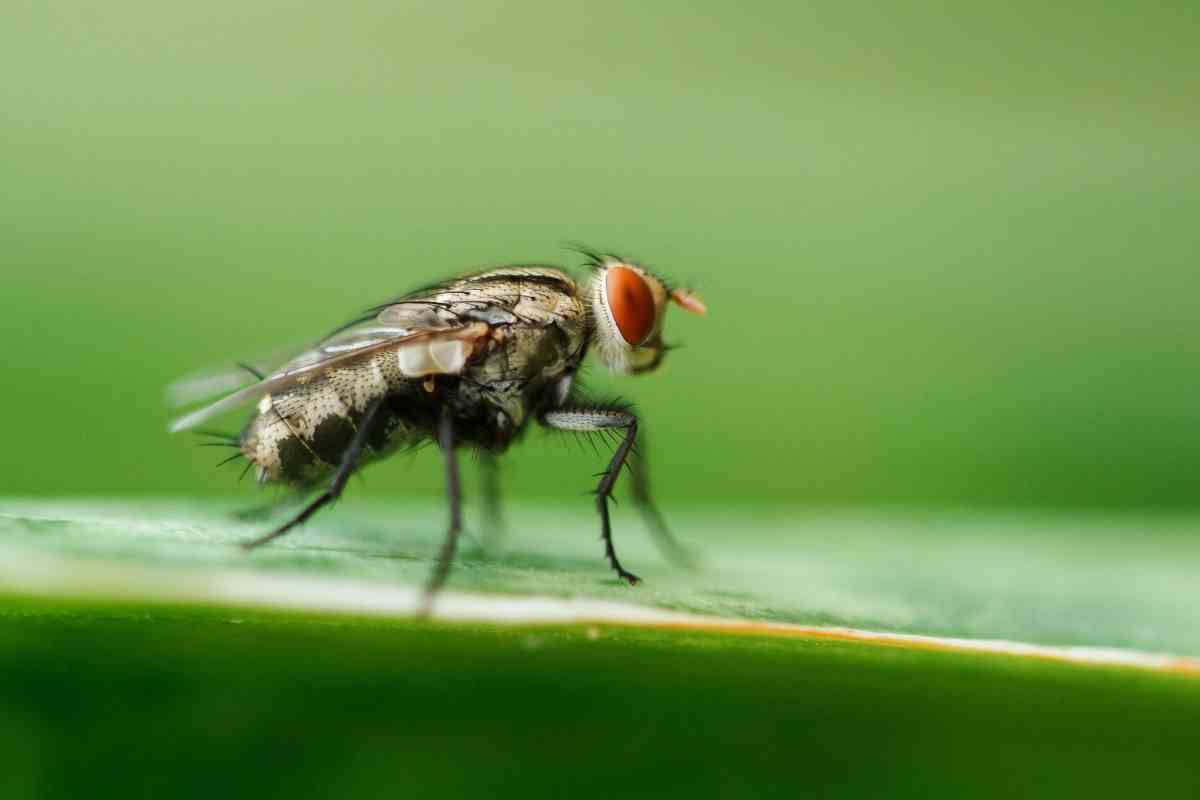Organic farming frequently relies on stinky products, such as manure and fish emulsion, for various purposes, including increasing soil fertility, reducing municipal waste, and assisting with animal waste management.
Ammonia (NH3) and Methane (CH4) are two of the most common compounds emitted during the microbial breakdown of organic compounds.

These compounds are responsible for the unappealing scent.
Rot is the main smell that attracts flies; this includes organic fertilizers that are decomposing, such as food compost, cow manure, and decaying leaves. However, well-aged organic fertilizers such as compost, aged cow manure, and pelleted chicken manure will not attract flies because they do not smell.
A buildup of moist organic matter provides an ideal environment for flies to lay eggs and hatch into larvae, producing more flies. Furthermore, the presence of decaying scents indicates a food source for flies.
Are Flies Any Good For The Garden?
The biodiversity in the garden can do a lot to keep it healthy.
Aside from the buzzing flies that appear in your garden at the most inconvenient times, you’ll be surprised at how many other lifeforms exist in your soil.
Every insect contributes to the ecosystem in which it lives.
Below are some of the benefits of having flies in your garden.
Flies Can Be Nature’s Own Pest Control
Using flies to look after the garden is thought by many to be a superior method of pest control.
You don’t necessarily need to spray any artificial chemicals or pour strange chemical pellets around the farm when some good flies are around.

It may seem counterintuitive, but encouraging flies into the garden could be the very thing you need to do to grow better blooms, fruits, and veggies.
Remember This: Organic fertilizers will attract large predator flies like dragonflies that eat pests like aphids which are vectors of many plant diseases. This creates a balance of insect life in your garden.
Flies Can Be Alternate Pollinators
Pollination is important in every garden; all plants require pollination to make seeds and fruit.
Without pollination, many food plants grown cannot complete the reproduction process and, therefore, will not produce fruits or vegetables.
Adding organic fertilizer attracts more pollinator flies such as Hoverflies, bee flies, and other bee-mimicking flies.
While not as efficient at carrying pollen as true bees, these flies act as pollinators for varieties of plants that bees might not visit, especially plants that do not have nectar to attract bees or plants with dull-colored flowers or with unpleasant scents.
The flies don’t care.
Dedicated Decomposers
Sure, fungi and bacteria are well-known decomposers, but flies help with this, too! As unappealing as they seem, flies help break down organic matter and facilitate its return to the soil as nutrients.
Flies lay their eggs in manure.

The larvae then feed on the rotting filth, thus breaking the manure into its components.
They then release nutrients through their digestive processes for the plants, bacterial, and fungi to use.
How To Get Rid Of Bad Bugs In The Garden Naturally
Decaying organic fertilizer attracts various types of flies to a garden, and having a lot of them can be annoying; however, some do not harm or feed on the plants; they only feed on the bad bugs.
Fruit flies, whiteflies, fungus gnats, and bulb flies, on the other hand, make a five-course meal out of a garden.
These pests suck the cell content out of the plants, feed on vegetables and fruits, or their larvae feed on the plants’ roots, depending on the species.

Their feeding can cause stunted or poor growth, vigor loss, wilted or discolored leaves, and reduced crop yield.
It is critical to implement pest control in your gardens to help give your plants the best chance of survival and growth.
The best way to accomplish this is to learn who eats whom rather than to use lethal sprays and poisons that will destroy Mother Nature’s carefully designed ecosystem.
It’s not wrong to let nature take its course by encouraging and attracting beneficial flies to your garden to feed on their natural prey.
Divide your garden predators into two categories: good bugs and bad bugs.
Controlling flies in a garden with biological methods necessitates increasing the number of predatory flies such as robber flies, dragonflies, tachinids, and hoverflies. These beneficial flies naturally prey on other flies, reducing the pest population in your garden.
Final Thoughts
Because they are rich in natural food, most flies congregate in manure and compost piles used as fertilizer in organic farming.
After eating, they lay eggs in the same area to ensure a food supply for their young.
These eggs hatch into larvae, or maggots, in a matter of days, adding to the “ick factor” associated with flies.
In organic gardening, flies are a good thing. They pollinate your plants, so you get fruit.
Certain of the flies are also predators to the more typical “bad bugs” such as aphids (ladybugs) and various defoliating caterpillars (some wasps).
